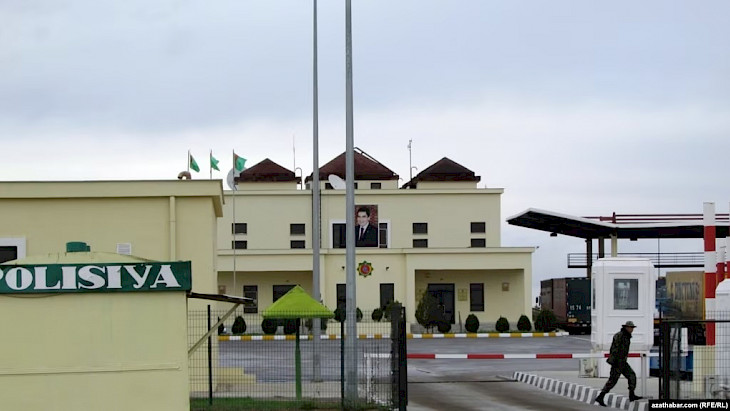Uzbekistan has temporarily closed the Farap-Alat checkpoint on the border with Turkmenistan. In recent months, there have been reports of an increase in the number of people crossing from Turkmenistan to Uzbekistan specifically through this checkpoint, "Ozodlik" reports, which is Turkmen service of the Liberty Radio.
According to the press service of the Border Troops of the State Security Service (SSS) of Uzbekistan, the Farap-Alat checkpoint was closed on November 20, 2023.
Official statements indicate that this measure was taken to prevent the spread of acute respiratory diseases.
There is no precise information on when the checkpoint will resume operations.
The Shavat-Dashoguz checkpoint between the Dashoguz region of Turkmenistan and the Khorezm region of Uzbekistan is not closed, according to an officer of the Border Troops of Uzbekistan in the Khorezm region.
"Only the border checkpoint between Lebap and Bukhara is closed. The Dashoguz-Khorezm checkpoint remains open," said the Uzbek border officer.
In recent months, there has been an increase in the migration of ethnic Uzbeks from the Lebap region of Turkmenistan to Uzbekistan.
Blogger Feruz Choriev, residing in the Alat district of the Bukhara region, states that the number of arrivals from neighboring Turkmenistan has increased since the authorities of Uzbekistan simplified the entry and registration procedures for foreigners.
"Many Turkmen cross the border with tourist visas. The thing is, during my free time, I work as a taxi driver. A few days ago, at the Farap-Alat checkpoint, I picked up two guys. They were doctors. While I was driving them to the city center, we were able to chat a bit. From our conversation, it became clear that gas, electricity, and utilities cost them less than in Uzbekistan, but food, especially flour, has become much more expensive for them, and salaries are much lower than ours. Turkmen come to us for work, and their numbers have increased recently. Also, many Turkmen come to Samarkand and Bukhara to fly to Russia or Turkey through these cities," says Choriev.
Observers note that there has been an increase in the number of seasonal workers from neighboring Turkmenistan in Uzbekistan.
"They come to Khorezm on a 90-day visa, work for three months on construction sites, and then return home. They agree to work for $50 a month. Now you can meet workers from Dashoguz on almost all construction sites in Khorezm," says Anvar Sabirov, a blogger from Khorezm, to "Ozodlik."
The head of the human rights organization Turkmen Initiative for Human Rights and the chief editor of the website "Chronicles of Turkmenistan," Farid Tukhbatullin, asserts that not only poverty and low wages but also ethnic discrimination and repression in Turkmenistan are factors prompting ethnic Uzbeks to migrate from the country.
"There is indeed a very large number of ethnic Uzbeks from the Lebap and Dashoguz regions of Turkmenistan moving to Uzbekistan. It can be said that mass departure is observed. Many of them first go to Uzbekistan on a 90-day visa, temporarily live with relatives in Khorezm or Bukhara, and obtain temporary registration. Then they collect official documents and legally take their families out of Turkmenistan.
They sell their homes and permanently move to Uzbekistan. The migration flow of ethnic Uzbeks has increased over the last six months. I cannot give an exact figure, but a large number of people are moving. In addition to economic difficulties, ethnic Uzbeks face other problems: there are no Uzbek schools for their children, Uzbek TV channels are blocked.
In areas or mahallas where a large number of ethnic Uzbeks reside, they are resettling Turkmen from neighboring districts and appointing them to leadership positions. Turkmen are also given priority in employment.
In schools and public places, they are forced to wear national Turkmen clothing. In such conditions, ethnic minorities have no choice but to leave for their historical homeland," Tukhbatullin explained.
Officially, Turkmenistan has a population of over 6.7 million people, of which 8-10% are ethnic Uzbeks.
Ten years ago, teaching in Uzbek language was completely discontinued in Turkmenistan's schools.
All Uzbek schools, opened during the Soviet era, were transferred to the Turkmen language of instruction.
In recent years, Uzbek-language media in Turkmenistan are being closed, and Uzbek TV channels are blocked.
According to official statistics, the number of immigrants to Uzbekistan from January to September 2023 amounted to 168.7 thousand people.
CentralasianLIGHT.org
December 14, 2023

